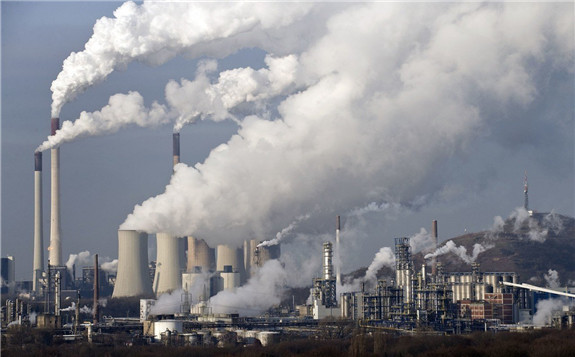
According to the research: Fossil fuels offer 'increasingly poor' return on energy investment.
Scientists say renewables are fast catching up with fossil fuels on the amount of energy they yield compared to how much they require to build and operate.
Fossil fuels offer an increasingly poor return on energy investment, while returns secured from renewable energy sources could well be set to increase in future, a new study led by researchers at the University of Leeds has concluded.
Fossil fuels are often seen as delivering high energy returns on energy investment, a measure of the ratio for how much energy a fual such as coal or oil produces compared to how much energy it takes to extract.
Oil, coal, and gas are typically calculated to have ratios above 25:1, meaning roughly one barrel of oil invested yields 25 barrels for use as energy in the economy, whereas renewable energy sources can boast much lower ratios below 10:1, according to the study.
But it argues these ratios do not take into account the energy required to transform oil, coal, and gas into finished fuels such as petrol for cars or electricity used by households, and if these factors were considered it would place renewables and fossil fuels on a much more level playing field.
Co-authored by scientists from the Sustainability Research Institute at the University of Leeds, it calculates the energy return on investment (EROI) for fossil fuels over a 16-year period at roughly 6:1, and potentially as low as 3:1 in the case of electricity, both of which are much closer to those of renewable sources.
Moreover, the study warns that the increasing energy costs of extracting fossil fuels is likely to cause their EROI ratios to keep falling. If that happens, it could push energy resources towards a "net energy cliff", which refers to when net energy available to society declines rapidly due to the increasing amount of "parasitical" energy required in the energy production stage, the report states.
The findings therefore further strengthen the case for rapidly stepping up investment in renewable energy sources so that the clean energy transition may actually halt, or even reverse, the decline in global EROI at the finished fuel stages, the researchers said.
"Measuring energy return on investment of fossil fuels at the extraction stage gives the misleading impression that we have plenty of time for a renewable energy transition before energy constraints are a concern," explained study co-author Dr Paul Brokway at the University of Leeds. "Those measurements are essentially predicating the potential energy output of newly-extracted sources like crude oil. But crude oil isn't used to heat our homes or power our cars. It makes more sense for calculations to consider where energy enters the economy, and that puts us much closer to the precipice."
Dr Lina Brand-Correa, another of the study's authors at the University, argued there was still too much focus on the initial economic costs of transitioning to renewables.
"Renewable infrastructure, such as wind farms and solar panels, do require a large initial investment, which is one of the reasons why their energy return on investment ratios have been so low until now," she said. "Once the renewable infrastructure is built and dependency on fossil fuel decreases, the energy-return-on-investment for renewable sources should go up. This must be considered for future policy and energy infrastructure investments decisions, not only to meet climate change mitigation commitments but to ensure society continues to have access to the energy it needs."
The study, which was published yesterday in the journal Nature, comes amid reports mining giant BHP Group is considering disposing its thermal coal business altogether as investors around the world increasingly push for a stronger focus on environmental, social, and governance (ESG) issues.
BHP, which is one of a raft of fossil fuel firms likely to be affected by Norway's decision to tighten restrictions on coal investments in its $1tr sovereign wealth fund, has made no firm decisions as yet and any review process is thought to only be at an early stage, according to the Financial Times.